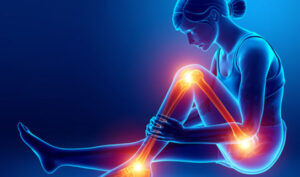What is kidney disease?
Kidney disease is a condition that affects the function of your kidneys, which are two organs located at the back of your body and help filter waste from your blood. Kidney disease can lead to serious health issues such as anemia, high blood pressure, and even renal failure if left untreated. Therefore, it’s essential to understand what causes kidney disease and how a kidney specialist in Delhi can treat it. Many kidney diseases, including acute or chronic conditions caused by infections, inflammation, or other factors such as diabetes or high blood pressure.
Symptoms of Kidney Disease
When your kidney has problems, it will show significant symptoms you should not ignore. Since the kidney is one of the body’s vital organs, it performs critical functions necessary for us to function daily. Despite this, kidney problems can present with subtle symptoms, and it is at these times that they are most threatening. Inflammation, infection, damage, or increased risks of serious problems down the road are signs that your kidneys may be at risk.
▪ Swelling
Swelling is one of the first signs that something may be wrong. Pay attention to any changes in your body, and contact a kidney specialist if you suspect something isn’t right. When our kidneys are not functioning correctly, they cannot effectively filter out the excess bodily fluid. It causes fluids to build up in the tissues and leads to swelling of different parts of the body, such as hands, feet, legs, or face. Swelling can also be accompanied by puffiness around the eyes or weight gain due to water retention.
● Urinary Changes
The most common symptom associated with urinary changes is blood in the urine. If you notice red or brown-coloured urine, or if your urine has a foul smell or is cloudy, this could indicate a possible issue with your kidneys. Other symptoms may include:
▪ Difficulty urinating.
▪ Needing to go more frequently than usual.
▪ Feeling burning when you pass urine.
You also may find that your urine volume is lower than average even if you’re drinking lots of fluids, which could be another sign that something isn’t quite right with your kidneys.
● Loss of Appetite
A buildup of toxins resulting from decreased kidney function can be one of the causes of this condition
● Fatigue & Weakness
The blood can become contaminated with toxins and impurities if kidney function is impaired. It can cause tiredness and exhaustion even after mild activities. Weakness is another symptom that goes hand-in-hand with fatigue; it could manifest as a feeling of heaviness or a lack of muscle strength.
● Dry and itchy skin
Symptoms such as dry skin and itching indicate a mineral and bone disorder often associated with chronic kidney disease. It occurs when the kidneys cannot maintain a proper balance of minerals and nutrients in the bloodstream.
● Nausea & Vomiting
Nausea and vomiting are caused by toxins left behind in the body due to the kidneys not functioning correctly. It can cause a person to feel ill, lose their appetite, and even have trouble keeping food down. In some cases, extreme nausea and vomiting can lead to dehydration, electrolyte imbalances, malnutrition, or even severe complications like acidosis or low blood pressure.
● Pain in the Legs/Side
The pain could range from dull aches to severe cramps and stiffness. It is vital to note if this symptom appears along with other common indicators like fatigue, swelling in the hands and feet, or anemia. These are red flags for kidney disease and should be discussed with your doctor immediately for an accurate diagnosis.
● Muscle cramps
Impaired kidney function can result in electrolyte imbalances. The cramping of muscles may be caused, for example, by a low calcium level and an unbalanced phosphorus level.
Also Read more about Dietary Changes You Should follow for Healthy Kidney and get aware of it.
● Foamy urine
When the urine contains excessive bubbles – particularly those requiring several flushes to disappear – this indicates the presence of protein in the urine. There is a high chance that this foam will resemble the foam produced when scrambling eggs. It is because albumin, commonly found in urine, is also found in eggs.
● High blood pressure
Increased blood pressure can be caused by excess fluid and sodium accumulation associated with kidney disease. It has also been demonstrated that high blood pressure may damage the kidney’s blood vessels and cause the condition to deteriorate over time.
Conclusion
Kidney disease is an acute condition that can affect anyone regardless of age. By recognising the signs and symptoms, individuals can identify them early and start treatment as soon as possible. Getting an annual checkup from a kidney specialist in Delhi is highly recommended to detect any problems with kidney health or function. Additionally, staying aware of potential risk factors and having a healthy lifestyle can help prevent kidney diseases from occurring in the first place.




